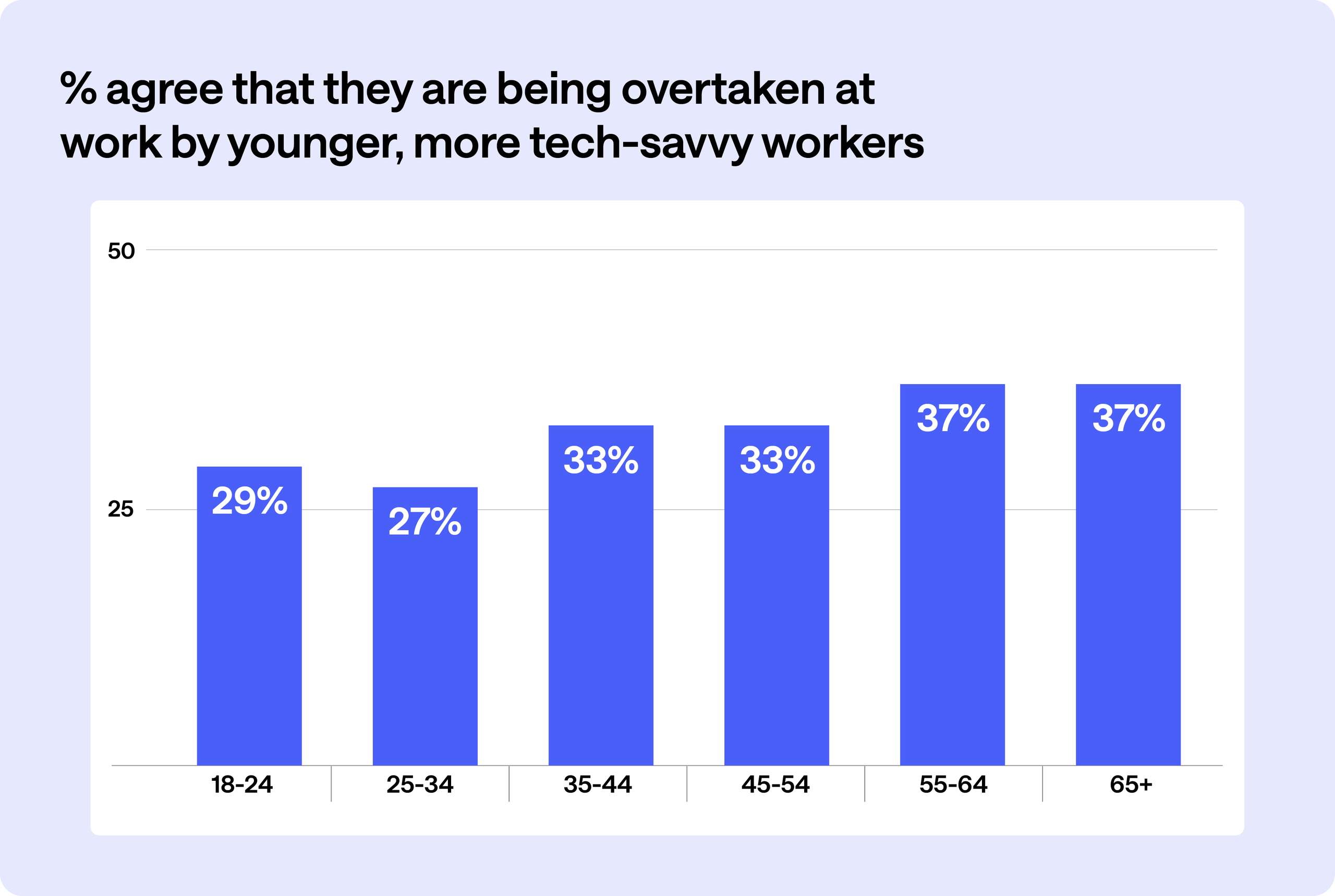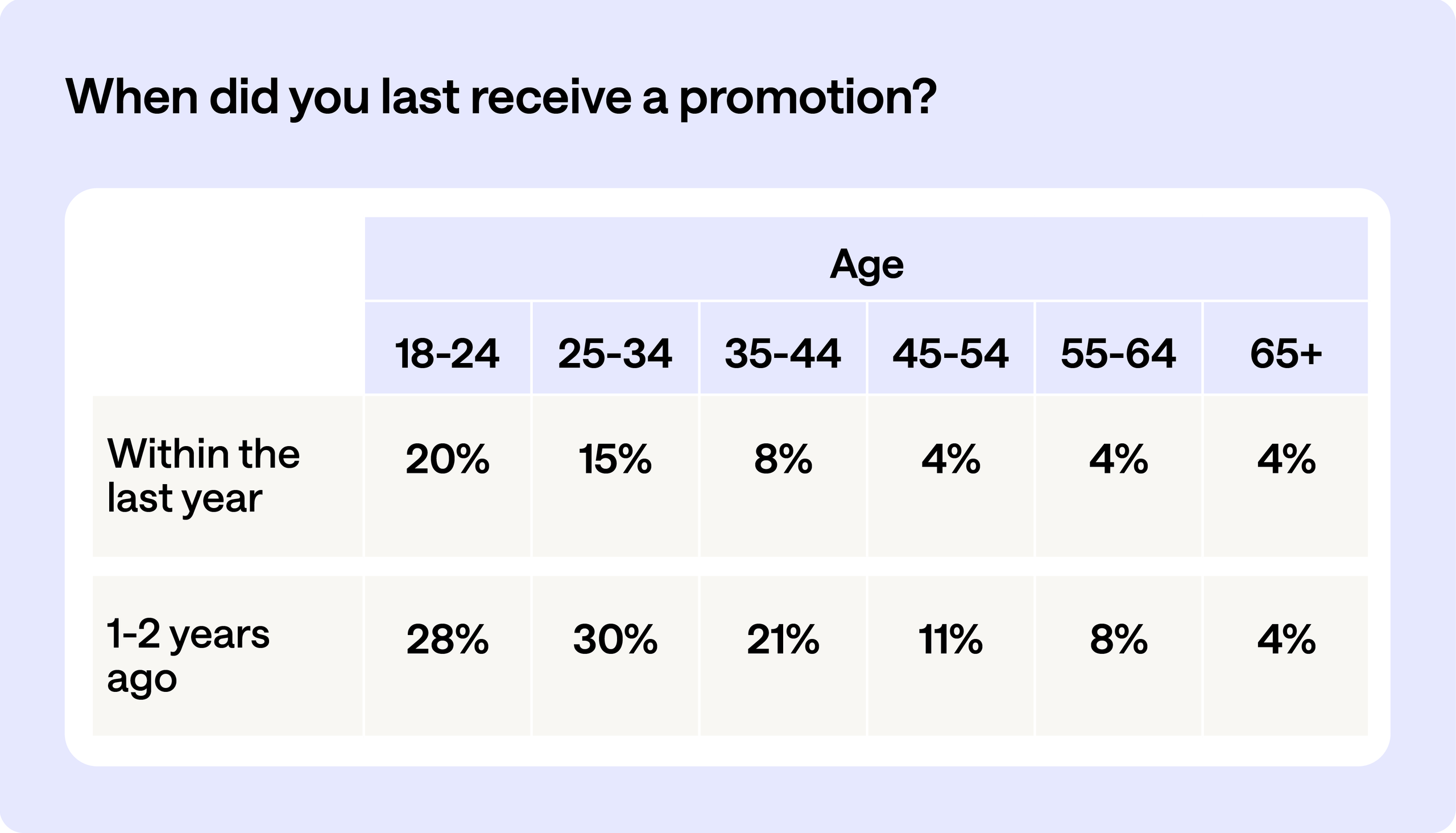The world of work is constantly evolving, driven by rapid technological advancements (did somebody say AI?!) and changing economic landscapes.
In this environment, a single shot of learning early on in life is clearly no longer sufficient.
Instead, we need to embrace a model of lifelong learning, where opportunities for growth and development are available to people of every age and at every stage of their career. That’s why at Multiverse, we deliver programmes that enable everyone to benefit from continuous, applied learning.
In the lead up to National Apprenticeship Week, we commissioned new polling with Public First to understand more about how people perceive their career journeys, from early career starters to more experienced workers - and found some surprises along the way…
Gen Z are just as worried as their parents about the threat of more tech-skilled workers
The rapid pace of technological change, particularly in the field of AI, has led to a widespread feeling of anxiety about being "left behind". And you might expect that this would be significantly more common among older generations.
But no: this concern isn't limited to older workers. It spans across ages and career stages.
Gen Z are similarly likely to think that they’re being overtaken by tech-savvy younger workers as those their parents’ age, with nearly a third of 18-24s expressing agreement compared with a third of the 45-54s.

This tech anxiety is also more pronounced in those who have taken extended leave from the workplace. Women who took extended leave are more likely than average to say they think they are perceived as not tech-savvy (37% vs 34%), and that they’re being overtaken at work by younger, more tech-skilled workers (38% vs 33%).
Career progression slows as you grow — but should it?
Our research found that those in the first decade of their career (18-24-year-olds) have seen much greater recent progression than those approaching the last decade of their career (55-64s).
Nearly half (47%) of career starters told us they have been promoted within the last two years, compared with just 12% of the 55-64s.
This career plateau needn’t be the case. Particularly with the UK government’s ambitions for growth and boosted productivity, there is no reason why more experienced workers shouldn’t also be enabled to seize the skills opportunity alongside their early career counterparts. After all, AI wasn’t around when most older workers began their careers.
In their working lives they’ve been witness to the death of the fax machine, the rising tide of email, the advent of the internet and the move to mobile. And they’ve tackled them all. Who says there’s such a thing as too old for AI?!
With this stark data, it’s perhaps unsurprising that more than two in five workers aged 55-64 (42%) express negative feelings towards their current pay level, and the availability and frequency of payrises (49%) and promotions (44%). Reskilling could be a solution: not just for individuals. Imagine the national economic upside if those in the last decade of their careers were promoted with the same frequency of those in their first.

More experienced workers recognise the need to reskill in tech
Despite feeling like they are not a priority for training and development (two in five agreed), older workers are more keen to develop their digital and AI skills than younger cohorts.
While some people might have the perception that older generations are tech-resistant, this data demonstrates loud and clear the fact that age doesn’t correlate to willingness to learn new skills.
Women who took an extended period of leave from work are also more likely than average to say that they need training at work to become capable of using new tech (45% vs 37%). They also express the desire to gain improved digital and AI skills from training.
These differences in priorities highlight the need for tailored approaches to skills development, ensuring that everyone, regardless of age or career stage, has access to the training they need to succeed. This was one of the core principles included in our Skills Mission report - we know from polling we commissioned last year that 9 in 10 workers support the right to reskill.
Taking learning out of the classroom and into the workplace
The evidence is clear: learning shouldn't be a one-time event. By prioritising continuous learning, we can help to ensure that there is equitable access to economic opportunity for all.
This helps employers - because it offers them a more skilled and engaged workforce, who they’re more likely to be able to retain.
And it helps learners - because it empowers them with the tools they need to succeed in a world brimming with change.
You’re never too old to try something new. You’re never too young to recognise the substantial effects of technological change.
Methodology
Public First online survey commissioned by Multiverse for the period 17 to 21 January 2025 with 2011 participants. All results are weighted by interlocking age and gender, region, and social grade to nationally representative proportions.






